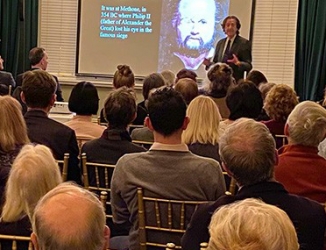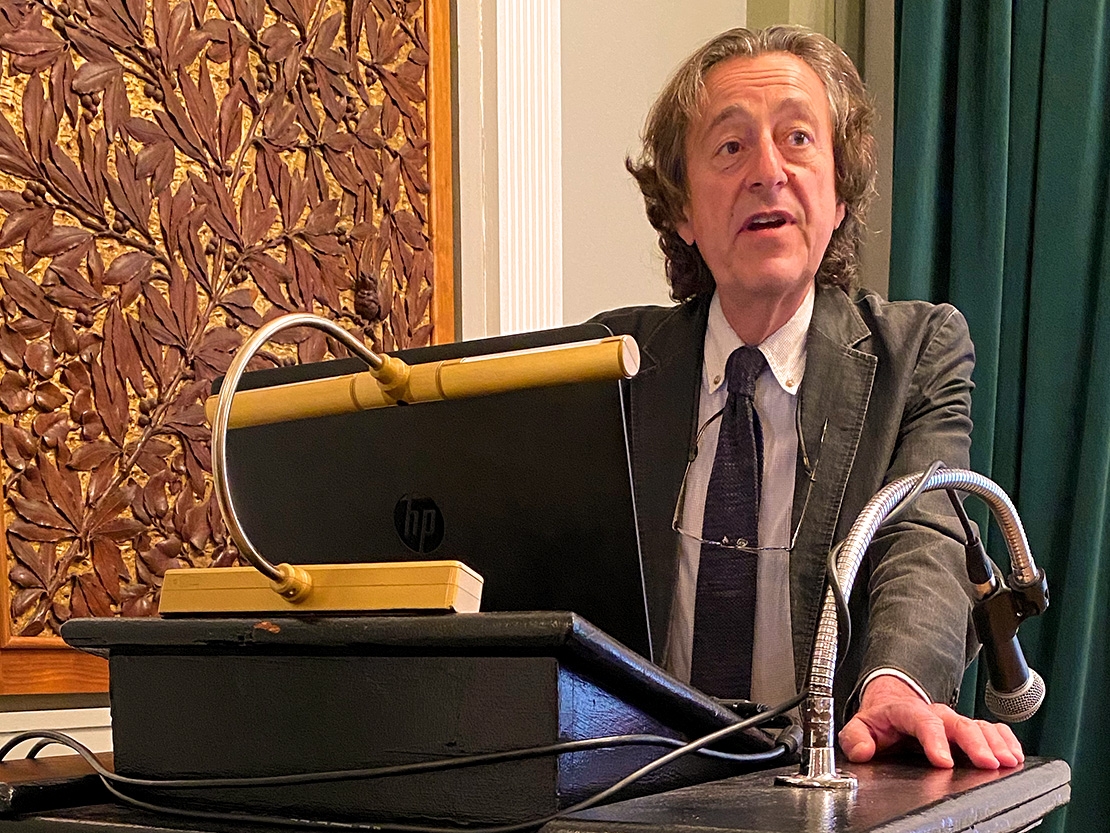John Papadopoulos Speaks at National Arts Club

On January 27 John Papadopoulos, core faculty member of the Cotsen Institute and professor of Classics, addressed a near-capacity crowd at the National Arts Club in New York. In his presentation on “New Evidence from Ancient Methone,” Papadopoulos discussed the thriving settlement, industrial center, and harbor of the site of Methone in northern Greece, which served as a cultural conduit from the eighth to the fourth century BCE. He also explored the significant role that Methone had in the development of the Greek language. This has led to a better understanding of its origins and the rewriting of intellectual history, according to Papadopoulos.
The National Arts Club was founded in 1898 and aims to stimulate, foster, and promote public interest in the arts and to educate the American people in the fine arts. In addition to archaeology, feature programs focus on the visual arts, literature, film, architecture, fashion, photography and music. Michele Kidwell-Gilbert, chair of the archaeology committee of the National Arts Club, organized the lecture as part of their effort to promote a better understanding of past cultures and to highlight ongoing discoveries made in the field of archaeology.
“The ancient city of Methone was fortunately rediscovered through archaeology,”  noted Papadopoulos. “Destroyed in 354 BCE by Philip II, the father of Alexander the Great, its treasured finds have been excavated by the Greek Archaeological Service, collaborating since 2014 with the American School of Classical Studies in Athens,” he added. “It was a privilege and a great pleasure to speak at the National Arts Club, in the former house of governor Samuel J. Tilden and one of the finest examples of the Victorian gothic revival,” he commented. “It was a wonderful opportunity to make many new friends—all passionate for Greek archaeology—and to see so many old friends from the American School.”
noted Papadopoulos. “Destroyed in 354 BCE by Philip II, the father of Alexander the Great, its treasured finds have been excavated by the Greek Archaeological Service, collaborating since 2014 with the American School of Classical Studies in Athens,” he added. “It was a privilege and a great pleasure to speak at the National Arts Club, in the former house of governor Samuel J. Tilden and one of the finest examples of the Victorian gothic revival,” he commented. “It was a wonderful opportunity to make many new friends—all passionate for Greek archaeology—and to see so many old friends from the American School.”
Published on February 7, 2020.


